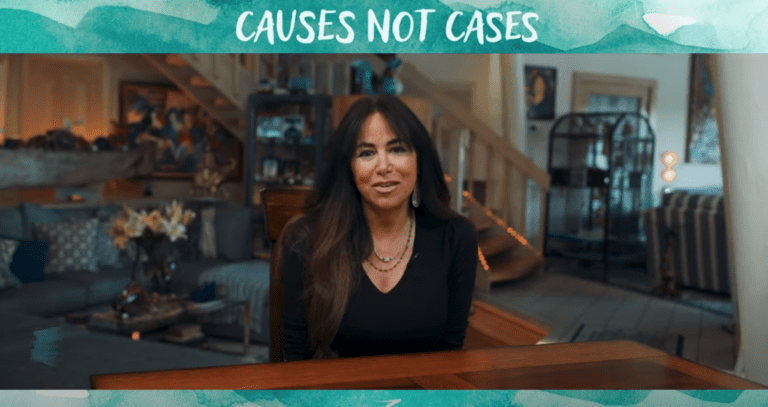November 4, 2009 – Consumer Reports’ latest tests of canned foods, including soups, juice, tuna, and green beans, have found that almost all of the 19 name-brand foods tested contain measurable levels of Bisphenol A (BPA). The new findings show that BPA can be found in a diverse assortment of canned foods including those labeled “organic,” and even in some foods packaged in “BPA-free” cans. Consumer Reports’ tests of a few comparable products in alternative types of packaging showed lower levels of BPA in most, but not all cases.
“The findings are noteworthy because they indicate the extent of potential exposure,” said Dr. Urvashi Rangan, Director of Technical Policy, at Consumers Union, nonprofit publisher of Consumer Reports. “Children eating multiple servings per day of canned foods with BPA levels comparable to the ones we found in some tested products could get a dose of BPA near levels that have caused adverse effects in several animal studies. The lack of any safety margin between the levels that cause harm in animals and those that people could potentially ingest from canned foods has been inadequately addressed by the FDA to date.”
The FDA is soon expected to announce the findings of its most recent reassessment of the safety of BPA. Consumers Union hopes it will remedy some of the deficiencies of its previous analysis. BPA has been linked to a wide array of health effects including reproductive abnormalities, heightened risk of breast and prostate cancers, diabetes, and heart disease.
Consumer Reports’ tests convey a snapshot of the marketplace and do not provide a general conclusion about the levels of BPA in any particular brand or type of product tested. Levels in the same product purchased at different types or places or in other brands of similar foods might differ from Consumer Reports’ test results. Consumer Reports tested three different samples of each canned item for BPA and found:
Highest levels of BPA in our tests were found in some samples of canned green beans and canned soups.
* Canned Del Monte Fresh Cut Green Beans Blue Lake had the highest amount of BPA for a single sample in Consumer Reports tests, with levels ranging from 35.9 parts per billon (ppb) to 191 ppb.
* Progresso Vegetable Soup BPA levels ranged from 67 to 134 ppb.
* Campbell’s Condensed Chicken Noodle Soup had BPA levels ranging from 54.5 to 102 ppb.
* Average amounts in tested products varied widely. In most items tested, such as canned corn, chili, tomato sauce, and corned beef, BPA levels ranged from trace amounts to about 32 ppb.
Given the significance of BPA exposure for infants and young children, Consumer Reports tested samples of Similac Advance Infant Formula and Nestlé Juicy Juice All Natural 100% Apple Juice. The findings revealed:
* Similac liquid concentrate in a can averaged 9 ppb of BPA, but there was no measurable level in the powdered version.
* Nestlé Juicy Juice in a can averaged 9.7 ppb of BPA, but there were no measurable levels in the samples of the same product packaged in juice boxes.
“The BPA levels in our samples of Nestlé Juicy Juice, at about 9 ppb, were not among the highest in the foods we tested. However, considering how many servings of juice young children may consume daily, a child still could exceed a level that Consumers Union thinks would provide an adequate margin of safety,” said Dr. Rangan. Bypassing metal cans in favor of other packaging such as plastic containers or bags might lower but not eliminate exposure to BPA, but this wasn’t true for all products tested.
* Campbell’s Chicken Noodle Soup in plastic packaging contained detectable amounts of BPA but at levels that were significantly lower than the same brand of soup in the can.
* StarKist Chunk Light canned tuna averaged 3 ppb of BPA, but BPA levels in the same brand in a plastic pouch weren’t measurable.
* Bird’s Eye Steam Fresh Cut Green Beans, frozen in a plastic bag, contained very low levels of BPA, about 1 ppb or less.
* However, in one item tested, the alternative packaging contained higher levels of BPA than the canned version. Chef Boyardee Beef Ravioli in Tomato and Meat Sauce packaged in a plastic container with a metal peel-off lid had BPA levels 1.5 times higher than the same brand of food in metal cans.
BPA was found in some products packaged in cans that claimed to be “BPA-free.”
Although tests of the inside of the cans found that the liners were not epoxy-based, suggesting BPA was not used, samples of Vital Choice’s tuna in “BPA-free” cans were found to contain an average of 20 ppb of BPA and those of Eden Baked Beans in “BPA-free” cans averaged 1 ppb BPA.
BPA, which has been used for years in clear plastic bottles and food-can liners, has been restricted in Canada and some U.S. states and municipalities because of potential health effects. But, there are no federal restrictions on BPA in food packaging. Federal guidelines currently put the daily upper limit of safe exposure at 50 micrograms of BPA per kilogram of body weight. But that level is based on experiments done in the 1980s rather than hundreds of more recent animal and laboratory studies indicating that serious health risks could result from much lower doses of BPA. Several animal studies show adverse effects, such as abnormal reproductive development, at exposures of 2.4 micrograms of BPA per kilogram of body weight per day, a dose that could be reached from a person eating one or a few servings daily or an adult daily diet that includes multiple servings of canned foods containing BPA levels comparable to some of the foods Consumer Reports tested.
In keeping with established practices that ensure an adequate margin of safety for human exposure, Consumer Reports’ food-safety scientists recommend limiting daily exposure to BPA to one-thousandth of that level, or 0.0024 micrograms per kilogram of body weight, significantly lower than FDA’s current safety limit.
An FDA special scientific advisory panel reported in late 2008 that the agency’s basis for setting safety standards to protect consumers was inadequate and should be reevaluated. A congressional subcommittee determined in 2009 that the agency relied too heavily on studies sponsored by the American Plastics Council. The FDA, now under the leadership of Dr. Margaret Hamburg, is expected to announce soon its reassessment of BPA safety. Bills are currently pending in Congress that would ban the use of BPA in all food and beverage containers. Industry has been waging a fight against new regulations.
Almost a decade ago, Consumers Union was one of the first consumer groups to test BPA in baby bottles, and to warn consumers about its potential dangers. Consumers Union calls on manufacturers and government agencies to act to eliminate the use of BPA in all materials that come into contact with food. Consumers who are concerned might be able to reduce, though not necessarily eliminate, their dietary exposure to BPA by taking the following steps:
* Choose fresh food whenever possible.
* Consider alternatives to canned food, beverages, juices, and infant formula.
* Use glass containers when heating food in microwave ovens.







